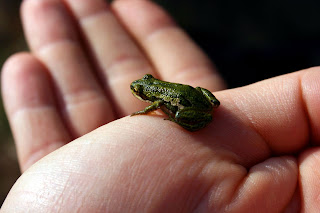 Climate change is causing a species die-off at a historic site for American transcendentalism
Climate change is causing a species die-off at a historic site for American transcendentalismWalden Pond, a 61-acre pond located in Concord, Massachusetts, was made famous by "Walden; or, Life in the Woods," a transcendentalist tome by Henry David Thoreau.
Written in 1854 when the philosopher lived by the pond on land owned by the founder of transcendentalism, Ralph Waldo Emerson, "Walden" contains a critique of modern consumerism, calling for a deeper connection between man and nature.
Though the book has long been part of the canon of American literature, it would seem that society hasn't quite heeded its call.
Many of Walden Pond's plant species -- including buttercups, dogwoods, lilies, orchids, roses and violets -- are dying out due to climate change.
A new study, published in this week's Proceedings of the National Academy of Sciences, has found that 25 percent (120 of the 473 species that were documented by Thoreau) have vanished. Thirty-four percent -- 156 species -- are quickly approaching extinction.
On the other side of the country, spanning the states of Wyoming, Montana and Idaho, another iconic American location -- Yellowstone National Park -- reveals an even grimmer situation.
A different study in the same journal has found that in the last 16 years, the number of permanently dry ponds in the park have quadrupled.
As a result of the water loss, half of the area's amphibian species have died out, including the boreal chorus frog (pictured) and the Columbia spotted frog.
Conservationists such as the International Union for Conservation of Nature (IUCN) and Conservation International (CI) are trying to stem the tide of extinction, but they are fighting against global warming's seemingly unstoppable death march.
Perhaps they should look to Thoreau's classic for inspiration: "If you have built castles in the air, your work need not be lost; that is where they should be. Now put the foundations under them."
image: Royal Olive


